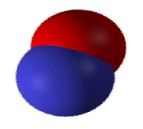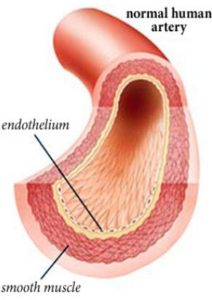I was recently asked the question can L-arginine cause bleeding by a concerned wife who is trying to help her husband with some of his cardiovascular health challenges. She just recently came across Nitric Oxide Therapy through the use of L-arginine. Here is her exact statement to me:
“Look at the drug interaction list. I know this is old research but it raised some concern. Does l-arginine lower blood pressure? Because my husband has low blood pressure. Can it cause bleeding? He is taking aspirin and Plavix?”
Now in her statement are really two concerns:
Does l-arginine lower blood pressure? Because my husband has low blood pressure.
Can it cause bleeding? He is taking aspirin and Plavix?
Let’s tackle the first one.
Can L-arginine Lower Blood Pressure?
 L-arginine is converted by your endothelium to nitric oxide.
L-arginine is converted by your endothelium to nitric oxide.
Yes, nitric oxide can lower blood pressure. One of the benefits of nitric oxide is that is relaxes the smooth muscle of the vascular wall causing dilation of the blood vessel for improved blood flow. This reduces the resistance to blood flow, which helps many with high blood pressure see their blood pressure reading return to normal.
Now her concern is this.
Would this action cause her husband’s low blood pressure to go even lower.
Most likely not. And here’s the reason why.
When you properly nourish the endothelium with the right ingredients to help it optimize its production of nitric oxide, it then initiates another benefit of nitric oxide. That benefit is healing damage done to the endothelium.
As this occurs more to the endothelium becomes functional.
And one of the functions of the endothelium is to properly regulate your blood pressure. Just as the endothelium creates nitric oxide for vasodilation it also releases signaling molecules for vasoconstriction.
Thus a healthy endothelium actually helps to properly regulate your blood pressure so that it doesn’t go too low or too high. To help you better understand this here is one of my original videos called The Secret to Cardiovascular Health.
Can L-arginine Cause Bleeding?
Now let’s address the second concern of l-arginine causing bleeding especially since her husband is taking aspirin and Plavix.
One of the main benefits of nitric oxide is to help keep blood platelet cells from sticking together. This naturally reduces the risk for strokes and heart attacks.
Now you might think this would interfere with blood clotting but it doesn’t work this way. If you cut yourself your endothelium synthesizes the vitally important molecule called Factor VIII or von Willibrand’s Factor, which is essential for blood clotting. Without this molecule a person could bleed to death from a simple scratch.
What this means is that a healthy endothelium protects you in two ways:
First, when properly nourished it produces nitric oxide for improved blood flow and the prevention of internal blood clotting.
Second, when you do sustain an injury that results in bleeding, then your endothelium senses this and creates the needed molecule that is essential for blood clotting.
Aspirin can interfere with this natural blood clotting response. And its use poses a greater risk for bleeding then nitric oxide.
On my old blogging site NO More Heart Disease I wrote a post on 9/17/2009 regarding this danger. It was called Aspirin or Nitric Oxide – Which is Better for Reducing the Risk of Blood Clots?
I just recently restore that post on my new site. Here’s a link to that post if you’re interested.
And here’s my original video that addresses this issue.
Hopefully this provides you with good information to better understand the risk for L-arginine and bleeding.
Blessing Lives Thru Nitric Oxide Therapy!
Dan Hammer
Leave a Reply
You must be logged in to post a comment.